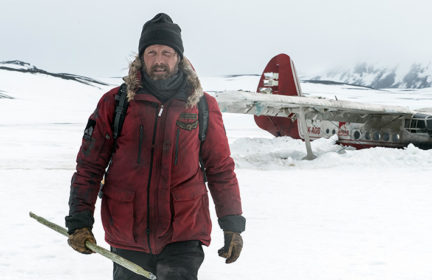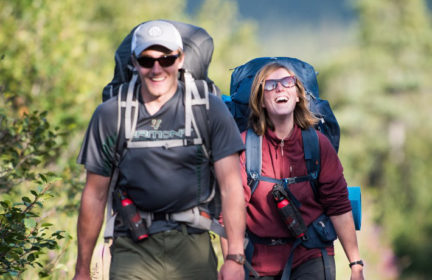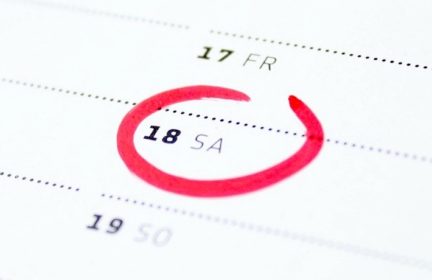Mental health preps
A lot of prepping is focused on our physical readiness to respond in time of crisis. Much of our time, energy, and money are spent amassing gear, equipment, and supplies; monitoring stock levels and expiration dates; reviewing and practicing potential courses of action; and getting ourselves in physical shape – all so that we have some sense of readiness for dire moments that we hope will never come.
Over the years, I’ve come to think of prepping like a giant puzzle. As all the right pieces click into place, we get one step closer to realizing the bigger picture of our own readiness.
I put to you, my fellow preppers, that this puzzle isn’t complete without some form mental preparedness and having coping preps at the ready. After all, you can have years of food and water, medical supplies, ammo, and all the comforts you could possibly want and need to physically survive a crisis, but none of that is worth it if you can’t mentally cope with the challenges that arise from the chaos you’re attempting to survive.
DISCLOSURE
Before I go any further: I’m not a psychologist, psychiatrist, social worker, or trained counselor -not by any stretch of the imagination. I do, however, have experience in receiving mental health services and it is the entirety of that experience that I’m calling upon to share these thoughts with you.
As you read, please keep in mind that this is my subjective experience. At no point in time should you consider this mental health advice to be acted upon without the guidance of a trained and certified professional.
If at any point in time you find yourself in crisis, I urge you to reach out to crisis services in your state, city, or region to seek immediate help.
BACKGROUND
As someone with a diagnosed history of PTSD, anxiety, and depression, prepping can sometimes be a challenge for me. If I’m not careful, my prepping can easily break free from its reins and run wild. If I’m not vigilant and mindful, that is, if I’m not present and thinking about my thinking, I suddenly find that my thoughts have raced very far afield. The result, for me, manifests in feelings ranging from overwhelming anxiety and hopelessness to extreme hyper-vigilance, and catastrophism.
The experience is somewhat similar to what you might have felt as your started your own journey into prepping, perhaps before you found The Prepared (or similar communities) -and yet, for me, it’s a very different kind of anxiety. If I’m not mindful, I can find myself feeling anxious to the point of overwhelming paralysis and that is completely counterproductive to my own efforts.
MENTAL HEALTH & STIGMA
Let’s be really honest with ourselves and each other for a few moments. There exists, even now in the 21st century [at the apex of the information age!] a continued stigma centered around mental health and those that suffer from a myriad issues. Sure, we’ve come a long way as a society, but not far enough -not if (for example) upon reading my “background” paragraph, you might have found yourself cringing slightly or knee-jerking in response. If that’s the case, then my point has been made and that’s part of the topic I want to address here, the stigma. -And, look, that kind of response is okay. I’m cool with it. It’s understandable and forgivable because I understand myself and, perhaps more importantly, I understand the human instinct to fear the unknown or unknowable.
That said, it should come as no surprise that myself and those who suffer and live with mental health issues are often perceived as being strange, scary, weak, damaged, flawed or in desperate need of repair. At the individual level, issues that go unaddressed (because of the stigmas we impose on each other and the topic mental health) can’t or won’t seek help, much less admit they need help. Worse still, they – I – don’t want to be perceived by others as weak, not manly enough, “crazy”, or whatever. -Even then, even if you might perceive your own mental health as a weakness, wouldn’t you want to strengthen that weakness rather than shaming it or ignoring it? Wouldn’t addressing that lead you to being more prepared to face other important challenges?
FACING REALITY & POSSIBILITIES
It is an undeniable fact of life that there will be injury, illness, and death. Everyone acknowledges this (to one degree or other). This is, after all, why we prep our first aid kits, familiarize ourselves with important things like field dressings, suturing, administering CPR, etc. Some of us have even had (or will seek) formal training of some kind in order to prepare for these and other situations.
DIG DEEP, A THOUGHT EXPERIMENT
[!TRIGGER WARNING!]
What follows are the kinds of questions I often ask myself -and that I’m asking of you, right now -and they go something like this:
What are you mentally and emotionally prepared to deal with? Are you truly prepared to face blood and gore, the onset of illness and disease, fatigue, famine, or utter exhaustion? Are you mentally ready to face the possibly of an unknown or uncertain future?
Sure, it’s easy to say that you are, but dig a little deeper! How will you potentially deal with, for example, losing some portion (or all!) of your hunker down preps because you had to bug out or suddenly found your stash area(s) unreachable or off limits? How prepared are you, truly, to face death, to potentially bury a friend or loved one, if need be? How will you cope with that loss? How are you coping with the loss of life right now, during the pandemic? What about widespread destruction, you ready for that? How might you cope with hours, days, weeks, or even months of ceaseless silence, of being alone, lonely, or left with your own thoughts? On the other end of that spectrum, how prepared are you to cope the ceaselessness chaos and destruction due to civil unrest or ongoing, active armed conflict?
I’m not really trying to drill my point home or to put too find a point on this. The last thing I want is to make anyone’s day crappy by throwing out these gruesome ideas and leave your ruminating. It’s just that… it’s one thing to have some vague, blurry idea of the possible things one might face, especially if you don’t have any frame of reference or practical experience. It’s one thing to have a relatively secure faith in humanity and in the fact that the vast majority of people will work together toward a common good. And, yet, it’s another thing entirely to face down the possibility of things going horribly, horribly wrong.
There are, undoubtedly, those among us here that have never experienced these sorts of things (and my personal hope is, they never will!). Fortunate are those who’ve never experienced combat or a natural disaster firsthand. There are, without a doubt, some preppers who might not have any frame of reference for what these truly traumatic experiences are like -the sights, sounds, smells and the impact those things can have on your psyche and it is to that that I’m calling for- and advising- a few preps.
Experienced or not, these kinds of thoughts and questions are really overwhelming, I know. Nevertheless, I offer to you that these are the kinds of questions each of us should take time to stop and truly, deeply consider. I propose that we must also mentally and emotionally prepare (or, for some, prepare to re-experience) the kinds of situations we physically already prep to face.
And as we consider these things and explore some of the ways we can prep our mental health and stability for times of uncertainty and crisis, we might suddenly find that we have added yet another tool to our preps.
WE NEED MENTAL HEALTH PREPS
Nothing is going to be a suitable substitute for a trained, certified professional, counseling, or medications. Nothing. Professionals -whether psychologists, psychiatrists, or social workers of every degree and stripe- invest years of their lives learning, studying, researching, and practicing [to the extent of our most current understanding of-] how the human brain works, how our thinking informs our decisions, and how what we experience can impact us in ways that might not be obvious to ourselves or others.
In the absence of a professional -perhaps in any number of the scenarios we might imagine, or in a world gone horribly wrong- what can we do for ourselves and each other to keep cool, collected, and organized in our thinking. How can we attain and maintain our emotional stability and health? What can we do to prepare or triage these issues until mental help arrives?
MINDFULNESS
Chances are, you’ve probably heard the term or seen it floating around somewhere by now. If you’ve spent a little too much time in your bunker or if you aren’t already familiar, mindfulness is a practice, an exercise to train your brain to turn your attention inward. At the heart of mindfulness is noticing and noticing that you’re noticing. Think of it as a kind of self-diagnostic mode.
Mindfulness practices (also called meditations) vary. Some variants include awareness of breathing (to find a place a clam), body scanning (noticing places of tension), or focusing your awareness on the senses. Some guided mindfulness routines dive deep into topics like emotional discomfort and building compassion (toward both yourself and others). At its heart, mindfulness is all about you and providing you a means of directing your attention to things, events, or experiences you may not have realized are impacting you and your well being.
TRADITIONAL MEDITATION
Although the aforementioned mindfulness practices are a form of meditation, I’ve separated what I call traditional meditation from mindfulness because this form of practice is all about, well, nothing.
Contrasted with mindfulness, one of the major ways traditional meditation practice differs is that it focuses on not having thoughts at all. As one begins this practice, one must first learn that that the mind is like a wild horse. It wants to run free! As you become more experienced and more disciplined in your practice, you learn to brush aside and let go of these spontaneous and wandering thoughts. Thoughts are a forgivable intrusion into this mind space and the goal is to seek calm, quiet, unperturbed peacefulness, a place of respite.
MOBILE APPS FOR MINDFULNESS & MEDITATION
Depending on your individual needs and your individual use- and threat models, there are no shortage of apps available to help you on the path to mindfulness and meditation. Some I’ve personally used and have found useful (on the Android platform) are as follows:
Calm
https://play.google.com/store/apps/details?id=com.calm.android
Mindfulness Coach
https://play.google.com/store/apps/details?id=gov.va.mobilehealth.ncptsd.mindfulnesscoach
MOBILE APPS FOR SOOTHING CALMING SOUNDS & WHITE NOISE
Naturespace
https://play.google.com/store/apps/details?id=com.naturespace.naturespace
Binaural Beats
https://play.google.com/store/apps/details?id=com.productions.dz.brainwaver
White Noise Pro
https://play.google.com/store/apps/details?id=com.tmsoft.whitenoise.pro
Noice
[Note! This app is available via F-Droid. For those not familiar, F-Droid is an alternative Android repository for Free, Libre, Open-Source Software]
https://f-droid.org/app/com.github.ashutoshgngwr.noice
FEEDBACK?
I welcome any feedback you might have and would welcome any constructive thoughts or personal anecdotes that might help each of us add more tools to our mental health preps.
Thank you for reading!
Be well. Be safe. Stay healthy.
Edits for spelling and grammar. Lots of edits. OMG, so many edits.
-
Best Replies
-
Comments (20)
-


